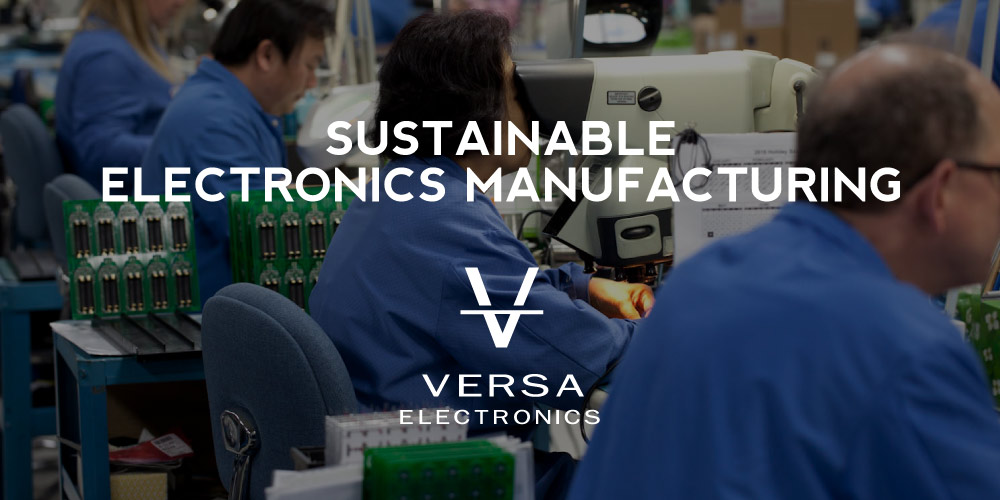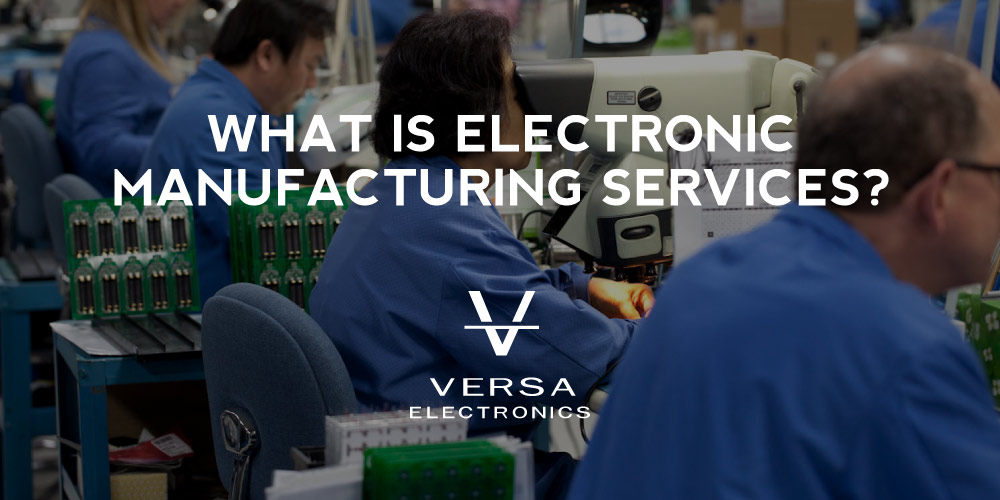Sustainable Electronics Manufacturing: Reducing Carbon and Cost
The demand for environmentally responsible manufacturing has never been higher, particularly in the electronics industry, where energy consumption and electronic waste pose significant challenges. Sustainable manufacturing practices in the EMS (Electronic Manufacturing Services) sector are proving that green initiatives can also be cost-effective, benefiting both the environment and business profitability. Versa Electronics, a leading EMS provider, is committed to integrating sustainable practices across its operations to minimize environmental impact while optimizing costs. This article explores the methods and benefits of sustainable manufacturing in electronics and how it aligns with Versa Electronics’ values.
Table of Contents
- Why Sustainability Matters in Electronics Manufacturing
- Key Sustainable Practices in EMS
- Benefits of Sustainable Manufacturing
- How Versa Electronics Drives Sustainable Change
- Conclusion: A Greener, More Efficient Future
Why Sustainability Matters in Electronics Manufacturing
As global demand for electronics continues to grow, so does the environmental impact of their production. Electronics manufacturing is an energy-intensive industry that relies on a variety of raw materials, including metals, plastics, and chemicals, many of which are finite and have significant environmental costs. The extraction, refining, and processing of these resources contribute to greenhouse gas emissions, air pollution, and habitat destruction. Sustainable manufacturing practices are essential in mitigating these environmental impacts, helping reduce the industry’s overall carbon footprint and conserve valuable natural resources for future generations.
For companies within the electronics manufacturing sector, sustainability is no longer just a moral obligation—it’s an increasingly essential part of business strategy. Consumers, investors, and regulatory bodies are placing greater emphasis on environmental responsibility, and companies that fail to adopt sustainable practices risk falling behind. Governments around the world are enacting stricter environmental regulations, including requirements for energy efficiency, waste reduction, and eco-friendly material sourcing. By embracing sustainability, manufacturers not only comply with these regulations but also strengthen their reputation and appeal to eco-conscious consumers and partners.
Another critical factor driving sustainability in electronics manufacturing is the issue of electronic waste, or e-waste. The rapid advancement of technology has led to shorter product lifespans, creating a growing waste management problem as outdated electronics are discarded. E-waste contains harmful chemicals that can leach into the soil and water, posing risks to human health and the environment. Sustainable manufacturing practices, such as designing products for longer life cycles, improving recyclability, and reducing hazardous materials, can significantly reduce the volume of e-waste. By designing products that are easier to repair, upgrade, or recycle, electronics manufacturers can help close the loop, promoting a circular economy where resources are reused rather than discarded.
Adopting sustainable manufacturing practices also presents a substantial opportunity for cost savings. Energy-efficient technologies, waste reduction, and resource optimization can lower operational costs in the long run, making sustainability a financially savvy choice as well. For instance, investing in energy-efficient equipment reduces electricity bills, while recycling materials or finding reusable alternatives decreases material costs. In many cases, sustainable practices align with lean manufacturing principles, as both focus on minimizing waste and maximizing efficiency. This alignment allows companies to enhance productivity while reducing their environmental impact.
For electronics manufacturers, sustainability is not merely a trend but a competitive advantage in an increasingly green-conscious market. Brands that prioritize environmental responsibility gain loyalty and trust from both consumers and investors, many of whom actively seek out companies with sustainable practices. By positioning themselves as leaders in sustainable electronics manufacturing, companies can differentiate themselves in a crowded market, attract eco-conscious customers, and build long-term brand equity. For Versa Electronics, sustainability isn’t just part of the business—it’s a commitment to a responsible future that aligns with customer expectations and industry demands.
Key Sustainable Practices in EMS
Leading EMS providers are implementing various sustainable practices, including:
- Energy-Efficient Electronics Manufacturing: Utilizing energy-efficient machinery and renewable energy sources to lower carbon emissions during production.
- Waste Reduction and Recycling: Minimizing waste by recycling materials and using recyclable components, helping to reduce electronic waste.
- Eco-Friendly Materials: Employing sustainable materials like biodegradable plastics and organic compounds in product designs.
- Water Conservation: Reducing water usage in manufacturing processes, essential in locations where water scarcity is a concern.
- Supply Chain Transparency: Working with suppliers who uphold environmental standards and transparency in material sourcing.
Benefits of Sustainable Electronics Manufacturing
Adopting sustainable practices in manufacturing offers significant benefits beyond environmental protection, including:
- Cost Savings: Energy-efficient equipment and waste reduction strategies can lower operational costs over time.
- Enhanced Brand Reputation: Companies with sustainable practices are increasingly favored by eco-conscious consumers and partners.
- Regulatory Compliance: Meeting environmental regulations helps avoid fines and ensures smoother operations in green-conscious markets.
- Improved Employee Morale: Working for a company that values sustainability boosts employee pride and engagement.
How Versa Electronics Drives Sustainable Change
Versa Electronics is dedicated to implementing sustainable manufacturing processes to reduce carbon emissions and operational costs. By focusing on eco-friendly initiatives, Versa Electronics helps clients achieve their sustainability goals. Here’s how we’re making a difference:
- Commitment to Renewable Energy: We prioritize the use of renewable energy sources across our facilities to reduce our carbon footprint.
- Investment in Energy-Efficient Technology: Our production lines are equipped with energy-saving machinery that minimizes power consumption without sacrificing performance.
- Recycling and Waste Management: Versa Electronics employs a robust recycling program to manage electronic waste, ensuring components are repurposed whenever possible.
- Supporting Sustainable Sourcing: We partner with suppliers who share our commitment to environmental responsibility, creating a sustainable supply chain from start to finish.
Conclusion: A Greener, More Efficient Future
The electronics industry has a responsibility to adopt sustainable practices that reduce environmental impact and operational costs. Sustainable manufacturing not only aligns with consumer expectations but also fosters a more resilient and efficient business model. Versa Electronics is at the forefront of this shift, integrating eco-friendly initiatives to support a greener future for electronics manufacturing.
Ready to make your electronics manufacturing more sustainable? Partner with Versa Electronics for eco-friendly EMS solutions that reduce carbon impact and enhance efficiency. Contact us today to learn more about our sustainable manufacturing services.





